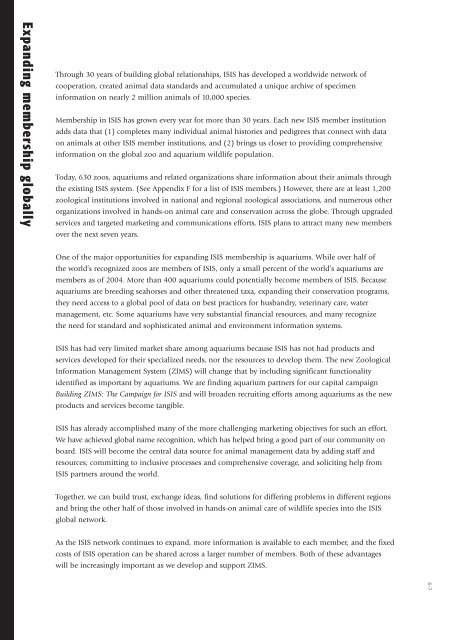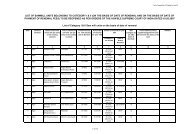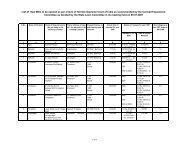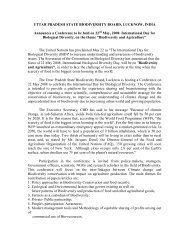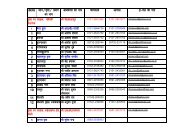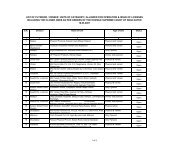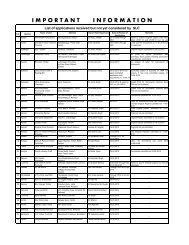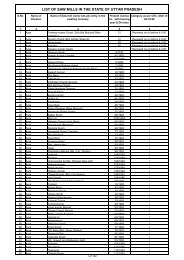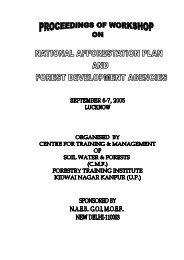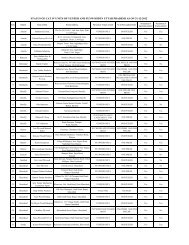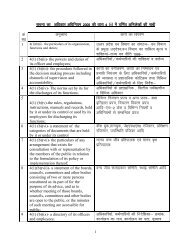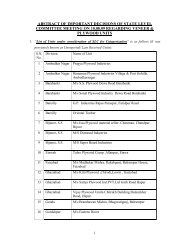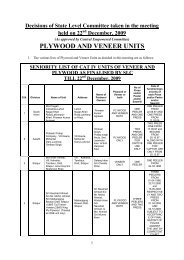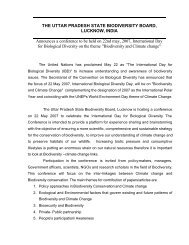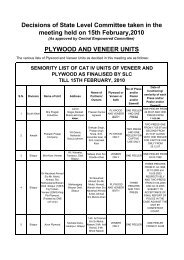903048B 7yrbuspln - U.P. Forest Department
903048B 7yrbuspln - U.P. Forest Department
903048B 7yrbuspln - U.P. Forest Department
You also want an ePaper? Increase the reach of your titles
YUMPU automatically turns print PDFs into web optimized ePapers that Google loves.
Expanding membership globally<br />
Through 30 years of building global relationships, ISIS has developed a worldwide network of<br />
cooperation, created animal data standards and accumulated a unique archive of specimen<br />
information on nearly 2 million animals of 10,000 species.<br />
Membership in ISIS has grown every year for more than 30 years. Each new ISIS member institution<br />
adds data that (1) completes many individual animal histories and pedigrees that connect with data<br />
on animals at other ISIS member institutions, and (2) brings us closer to providing comprehensive<br />
information on the global zoo and aquarium wildlife population.<br />
Today, 630 zoos, aquariums and related organizations share information about their animals through<br />
the existing ISIS system. (See Appendix F for a list of ISIS members.) However, there are at least 1,200<br />
zoological institutions involved in national and regional zoological associations, and numerous other<br />
organizations involved in hands-on animal care and conservation across the globe. Through upgraded<br />
services and targeted marketing and communications efforts, ISIS plans to attract many new members<br />
over the next seven years.<br />
One of the major opportunities for expanding ISIS membership is aquariums. While over half of<br />
the world’s recognized zoos are members of ISIS, only a small percent of the world’s aquariums are<br />
members as of 2004. More than 400 aquariums could potentially become members of ISIS. Because<br />
aquariums are breeding seahorses and other threatened taxa, expanding their conservation programs,<br />
they need access to a global pool of data on best practices for husbandry, veterinary care, water<br />
management, etc. Some aquariums have very substantial financial resources, and many recognize<br />
the need for standard and sophisticated animal and environment information systems.<br />
ISIS has had very limited market share among aquariums because ISIS has not had products and<br />
services developed for their specialized needs, nor the resources to develop them. The new Zoological<br />
Information Management System (ZIMS) will change that by including significant functionality<br />
identified as important by aquariums. We are finding aquarium partners for our capital campaign<br />
Building ZIMS: The Campaign for ISIS and will broaden recruiting efforts among aquariums as the new<br />
products and services become tangible.<br />
ISIS has already accomplished many of the more challenging marketing objectives for such an effort.<br />
We have achieved global name recognition, which has helped bring a good part of our community on<br />
board. ISIS will become the central data source for animal management data by adding staff and<br />
resources; committing to inclusive processes and comprehensive coverage, and soliciting help from<br />
ISIS partners around the world.<br />
Together, we can build trust, exchange ideas, find solutions for differing problems in different regions<br />
and bring the other half of those involved in hands-on animal care of wildlife species into the ISIS<br />
global network.<br />
As the ISIS network continues to expand, more information is available to each member, and the fixed<br />
costs of ISIS operation can be shared across a larger number of members. Both of these advantages<br />
will be increasingly important as we develop and support ZIMS.<br />
6-7


